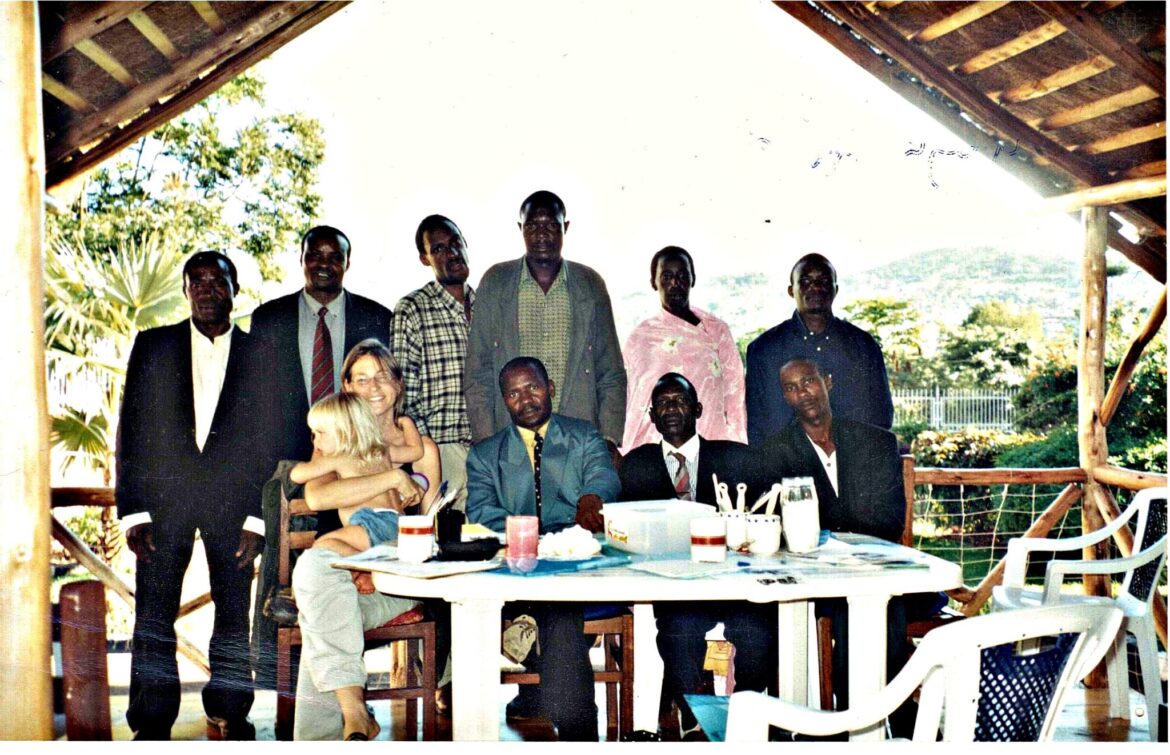Disclaimer: I am a former trailing spouse. My husband and I separated a few years ago, shortly after our move from Lyon, France to Geneva, Switzerland.
We are still very much a family, however, and my Ex lives up the street. But, if COVID-19 ever gets under control and he decides to move? I would not be faced, once again, with the question of closing up one life and inventing a new one wherever we land.
It’s not that this process has ever scared me. As a chronic expat, in the course of my 52 years, I’ve lived in 15 different cities, in nine countries, on four continents. I became a trailing spouse mainly because I fell madly in love with my sexy, smart Ex — but probably also because it seemed so normal to move around the globe because of a man’s job. My dad was a U.S. Foreign Service officer and my ex is a humanitarian medical doctor and epidemiologist who has worked with Médecins Sans Frontières/Doctors Without Borders (MSF).
First, I followed my father. Then, my husband. Now, I find it really exciting to ask only myself: Where next?
All over the map
Using the Gupte Scale, my trail has been all over the map, mentally as well as geographically:
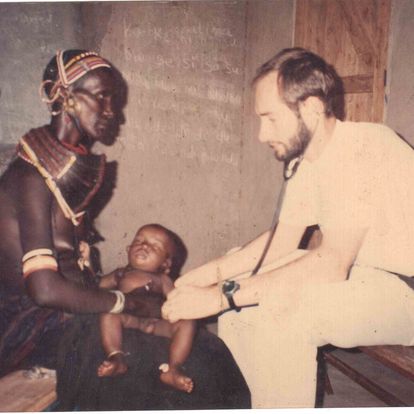
NEW ORLEANS, USA TO NAIROBI, KENYA, 1997: 6/15. Outwardly, I was happy and curious about our destination because I felt excited by the idea of being so in love as to follow someone across the world — in this case, my new husband’s MSF contract — but deep down, I was actually depressed. The timing was a 0, because I had just been offered my dream job as a therapist in Washington, D.C. When we arrived in Nairobi, my husband hit the ground running; he did give me rides here and there as I went all over town looking for employment and doing volunteer work, but I had almost no support, logistically or emotionally, from him or his employer. For MSF, the focus was solely on their urgent life-saving projects and the team’s bond.
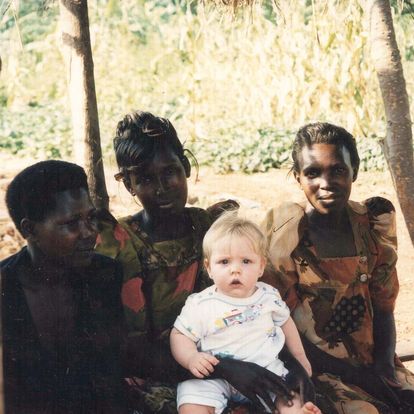
NAIROBI TO KAMPALA, UGANDA, 1999: 14/15. After being violently carjacked in Nairobi and suffering from post-traumatic stress as a result, I was eager to relocate to any destination that I was assured would be safer. The timing of this move was also perfect; we had just had a baby, so you could have sent me to the moon and it would have been OK as long as I had my daughter with me. But once again, there was very little support. My husband tried to help, but he was subsumed with urgent life-saving work, and I was on my own with our infant much of the time. Through networking, I found work in a rural district, providing HIV prevention education, and support for families affected by AIDS. I worked with the area’s farmers to create a counseling protocol and intervention strategies, including offering nutritional advice and yoga exercises.
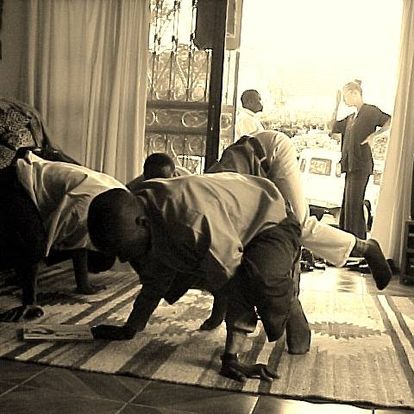
KAMPALA TO PARIS, FRANCE, 2001: 10/15. After discovering that my husband was having an affair — total crisis! — I packed a duffel bag and our daughter and fled Uganda for Paris (an ideal destination) immediately (good timing). Fortunately, we had bought a tiny apartment (decent resources) in Paris after a major quarrel about where we would live as a family; he wanted to keep traveling the world with MSF, while I wanted to make a stable home somewhere, and pointed out that he a “desk job” option in Paris…
PARIS TO LYON, FRANCE, 2011: 5/15. My husband and I had reconciled and had our son, and my career in Paris was going well — and then, I was dragged kicking and screaming to Lyon for his next assignment. My resources, however, including emotional support, were finally at a perfect 5. My husband was not racing off to a new emergency or epidemic every week, and he took care of most of the move. Also, by then I had been in France for 10 years and knew how it all worked.
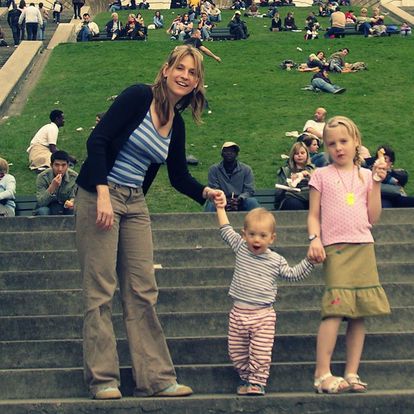
LYON TO GENEVA, SWITZERLAND, 2015: Finally, a perfect Gupte Scale 15 points! I had grown to love Lyon after all, yet I was thrilled when our family moved to Geneva. The timing was perfect, and my husband was once again very supportive in terms of the logistics. We did end up splitting up after the move, but that was due to the longstanding fundamental differences between us, not the move itself.
I have used all of those moves, as well as my childhood ones from the USA, to the Ivory Coast, Egypt, India, and Indonesia, as a reference point for the work I do with international couples and individuals, struggling because of their ”trailing situation.”
Growing up faster
In hindsight, I went into my nomadic marriage thinking it would look like my childhood… and learned the hard way that I had to grow up really fast.
As a child, your parents take care of you — and the U.S. Embassy was far more coddling of accompanying families than MSF. It makes sense that MSF doesn’t worry about trying to make a spouse comfortable, but that doesn’t make it easy to be the spouse in that situation. And my husband was completely unprepared for having a wife on mission with him.
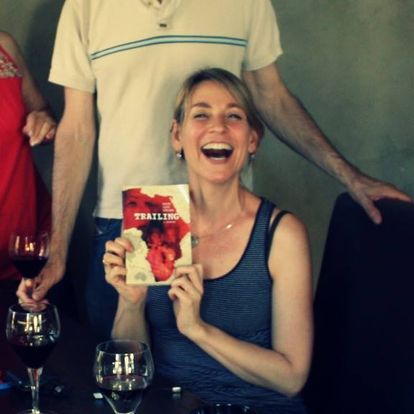
For the first two years of our marriage in Nairobi, my Ex and I learned in all the hard ways how different we actually were from each other. How we handled stress. How we handled trauma. How we handled our own self images. How we handled becoming parents.
Our relationship had been driven by passion — not reality.
My first book, Trailing: A Memoir, is about this big fat reality check: being madly in love is neither enough to keep a couple together, nor an individual happy and mentally healthy. It doesn’t sugarcoat what it’s really like to follow someone around the world, and be expected to craft a fulfilling life out of thin air. Isolation, depression, self-medication, affairs, violent crime, leaving each other… it all happened to us in East Africa.
The biggest lesson I learned as a trailing spouse — and I think is the best thing that ever happened to me in terms of my own personal development — is that you must find a way to be who you are, rather than waiting for an employer to activate you.
I was depressed for a long time by the fact that I wouldn’t be able to get hired as a therapist, because of linguistic incapacity, incompatible diplomas, etc. (My two U.S. master’s degrees — one in clinical social work and one in public health — did not count for much in East Africa.) Yet somewhere along the way, and with the prodding of a few supportive friends, I realized that I could have the life I dreamed of if I was willing to take the risk of building my own therapy and coaching practice.
With that newfound “not gonna wait around for someone else’s approval” attitude, I wrote and published my first book. Although I had an agent who was successful at getting my manuscript to the desks of several major publishing houses, the one that was interested asked for the rewrite to make it more about my husband’s experience with MSF, as “that’s the interesting part of the story” and “there isn’t a broad market for trailing spouses.” No matter how much I wanted to see the book in print, however, if I had shifted the focus to my husband’s work, that would have defeated my entire point. Instead, I told my own story via CreateSpace (Amazon’s self-publishing platform).
Trailing: A Memoir has been quite successful, and this path to publication is the perfect metaphor for what the trailing spouse is tasked with: finding a way and believing in her own life as valuable and important.
Not to be cavalier — it’s a big mind shift and requires a lot of work — but as I like to say, it’s only hard until it isn’t.
Fighting for home
Now I have two children that I cannot imagine being very far from: 22-year-old Carmen, in London, and 16-year-old Lorenzo, here in Geneva. If their lives carry them great distances from me, I will just have to accept it!
As a mother who had been a trailing child and a trailing spouse, however, I was determined to make sure my own kids would at least have a place to always go back to — a base. That’s why I fought so hard for my little apartment in Paris. That is where my kids consider “home,” and we stay there in between the times I rent it out to people on sabbatical. I will probably be an old lady in that apartment, and I love the idea that they will come back to the place they grew up — hopefully with kids of their own! When I am gone, they will still have that solid place that is theirs.
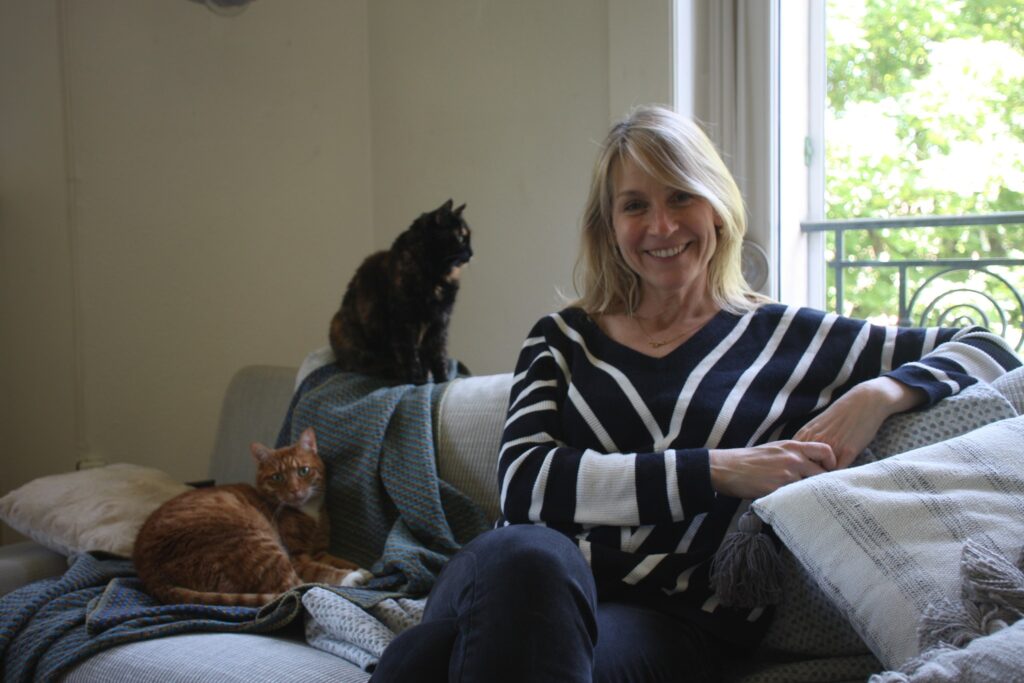
That’s what my second book, also self-published, is largely about: Fighting for home. I didn’t have that base when I was a kid, and as a result, when crisis hit when I became the trailing spouse, I had no place to go back to.
What — and where — is next?
I am now in the final stages of writing a third book that ties together all the themes of international identity, including how understanding our childhoods is part and parcel of leading self-aware adult lives. I don’t think insight is necessary to take action towards crafting the life we want — but it certainly helps.
Trailing is an experience that can be both horrible and wonderful. It’s important to remember that no matter where or how well it goes, a major relocation will reactivate all the underlying issues that any individual carries into their adult life from childhood, including attachment and identity questions, and any underlying anxiety or depression. Human stuff that gets dialed up to the max under the stress of an international move and all the eventual breakdowns that can take place when the two people in a couple have such disparate experiences.
Because I grew up as a trailing child, being a global nomad has always been central to my identity. But, I can thank my complicated marriage for forcing me to get clear with how I wanted my life to be — and to get confident enough to make it happen, in spite of all the obstacles along the way.
First, I insisted on establishing a base (Paris) to attend to the rootlessness that plagued me. Next, I became a successfully self-employed therapist and coach, even though this idea initially terrified me. Then, I self-published instead of succumbing to the message that my story wouldn’t be interesting enough on its own. And finally, I separated from my husband when I realized I didn’t have to stay in a marriage in which we were both continually growing, but away from each other.
All of these took acts of courage, born from the challenges of my life as a trailing spouse.

